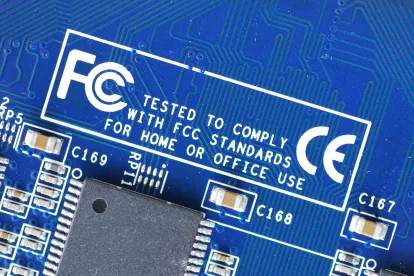In its continuing actions to implement the TRACED Act, the Federal Communications Commission (FCC) has issued a Notice of Proposed Rulemaking (NPRM) to address Section 8 of the statute (https://docs.fcc.gov/public/attachments/FCC-20-140A1.pdf). Therein, Congress directed the FCC to “ensure that any exemption [under the Telephone Consumer Protection Act (TCPA] granted under sections 227(b)(2)(B) or (C) [of the TCPA]allowing callers to make artificial voice, prerecorded voice, or autodialed calls without consent include certain conditions.” More specifically, Section 8 requires that “any such exemption contain requirements with respect to: “(i) the classes of parties that may make such calls; (ii) the classes of parties that may be called; and (iii) the number of such calls that a calling party may make to a particular called party.”
The FCC, not later than December 30, 2020, must prescribe new or amend existing regulations to satisfy these requirements. If the exemption already meets the requirements, no new or amended regulations need be adopted.
Pursuant to this legislative directive, the FCC’s NPRM seeks comment on whether nine (9) specific exemptions need to be amended to satisfy Section 8. Those exemptions are:
-
Non-commercial calls to a residence
-
Commercial calls to a residence that do not constitute telemarketing
-
Tax –exempt non-profit calls to a residence
-
HIPPA- related calls to a residence
-
Package-delivery-related calls to a wireless number
-
Financial-institution calls to a wireless number
-
Health-care related calls to a wireless number
-
Inmate calling service calls to a wireless number
-
Cellular carrier calls to their own subscribers
Exemptions 5-8 above were adopted by FCC Order and are not in the FCC’s rules. The NPRM proposes to codify them in the rules.
The NPRM separately sets forth each exemption as it currently exists in terms of scope and applicability. In then seeks comment on how and to what extent it might need to be amended to meet the requirements of Section 8 of the TRACED Act.
For example, with respect to non-commercial calls to a residence, the NPRM notes:
“This exemption does not appear to specify the ‘classes of parties that may make’ such calls. The Commission has indicated, for example, that the exemption includes calls conducting research, market surveys, political polling, or similar activities. The exemption does appear to specify the ‘classes of parties that may be called’ because the exemption applies only to residential telephone lines. And the exemption does not appear to limit the number of calls a calling party may make to a called party. The Commission has not limited the number of calls a calling party may make pursuant to this exemption, nor do the Commission’s rules require a caller to provide any means for a called party to opt out of such exempted calls. We seek comment on these views and whether the exemption remains in the public interest.”
Comments on the NPRM will be due fifteen (15) days after publication of the NPRM in the Federal Register; reply comments will be due twenty-five days after publication in the Federal Register. The relatively short filing period is a result of the Congressional mandate to prescribe rules by December 30, 2020.
It would behoove callers who rely on any of these existing exemptions to review the NPRM closely and consider participating in the proceeding. Some of the exemptions appear from the NPRM to already include requirements of Section 8 (e.g., 6-8) and the NPRM itself observes “appear to satisfy” that Section.
In any case, however, modifications or limitations that the FCC might impose as a result of implementation of Section 8 could impact current business practices.




 />i
/>i

